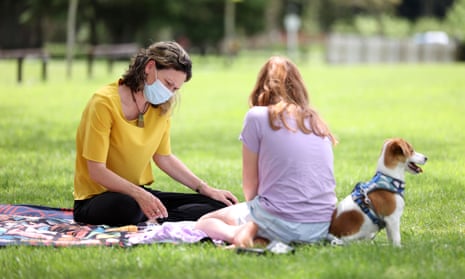We like predictability. We function best when we know what is going to happen. The irony here is that after all this uncertainty, predictability in this phase of the pandemic in New Zealand is increasing. As the Omicron wave gathers strength, we can most likely expect a version of what happened in other countries: a steep increase in case numbers, exerting pressure on the health and social care system.
New Zealand’s successful management of the primary health impacts of the pandemic may have contributed to a sense of “kiwi exceptionalism”. This may be responsible for the jolt we may feel when we realise that what has happened elsewhere might actually happen in New Zealand, when, for most of this pandemic, our experience has been very different.
So, how do we negotiate this Omicron-fuelled period of predictable unpredictability?
At the beginning of any crisis, there is a coming together which we can think of as a honeymoon period. But as we progress, life becomes more complex, and we realise that a return to some kind of regularity is further off and more complex than we first thought. The experience of togetherness that may have characterised the easiest stages of the pandemic has waned. Fast forward through a few waves of the pandemic, emerging variants, and ebbing and flowing of restrictions, and we arrive at a place where people’s expectations and needs about what happens next can differ from each other, sometimes greatly.
Let’s consider two vaccinated groups that might represent opposite poles of a continuum of expectations and behaviour that we may see in the weeks to come. There are others, but bear with me. First, there’s the “vaccinated-and-done”: they’ve had their two shots, and had their booster dose too. They have no other health concerns in their lives or for their family or community. They are being sensible about other public health precautions but, to a large extent, their behaviour is set. They’ve done what they can to contribute to collective good outcomes, they’re still exercising good judgment, and they want to continue living as they have done during the pandemic. They feel well protected in this environment – they feel safe within this uncertainty.
The other group is the “vaccinated-and-cautious”: they have similar vaccine protection, but they also have more complex health concerns. Perhaps they have personal vulnerabilities, or their family members do. They will be more cautious about engaging in society than the “vaccinated-and-done”. In their intersection of safety with uncertainty, their actual capacity for safety may be lower than others because of underlying health conditions, or living with vulnerable people. So despite being vaccinated, they will regulate their sense of safety by reducing their exposure to the virus by managing their movements in public more tightly.
There is potential here for misunderstanding and damage to social cohesion. The “vaccinated-and-cautious” may see actions of the “vaccinated-and done” (or others) going about everyday life as recklessness, which adds to their feelings of being unsafe. This may drive them to increase their sense of safety through reducing their exposure to the Omicron hazard, for example, by pulling their children out of school. However, from the point of view of the “vaccinated-and-done”, they may see the reticence of the “vaccinated-and-cautious” as contributing to their sense of frustration that life isn’t like it was before.
How do we solve this? In our daily lives, we understand that being considerate is the oil that greases the wheels and helps us to get through. We all bring our own personal strengths, vulnerabilities and experiences to any interaction, and that includes this pandemic. Life can be tough for everyone and we never know what another person may experience or what their vulnerabilities may be, be they invisible health concerns, or economic concerns about failing businesses exacerbated through the cascading impacts of the pandemic. So, when you can be considerate, take that option. But in order to be considerate, pause before reacting. In uncertain times, it’s easy to feel stressed, irritated and to lash out at others, and that can make a tough situation worse. Try to pause and breathe before reacting, and consider whether you need to make that comment.
Finding that sweet spot to live safely in an uncertain environment is going to take a lot of invisible work for many people, especially where the government has clarified that this is now a shared responsibility and that they will be less restrictive and directive in the future.
There is work to be done in building a shared agenda and action plan for what is yet to come, as well as a shared sense of just-enough-safety-for-most in a continued uncertain environment. But, as we face the Omicron wave, let’s recognise we have come this far together, and that considerate care for each other will always be the bedrock of our social cohesion and successful journey through this pandemic.
Dr Sarb Johal is a clinical psychologist, strategic communications adviser, and the author of Finding Calm: Managing fear and anxiety in an uncertain world
